Selecting the right industrial oil-fired boiler manufacturer is a crucial step in ensuring long-term system performance, operational efficiency, and regulatory compliance. A poor choice can lead to frequent breakdowns, low efficiency, safety risks, and difficult after-sales support—resulting in increased operational costs and unplanned downtime. A reliable manufacturer not only delivers high-quality products but also provides technical expertise, robust support, and long-term value.
To choose a reliable industrial oil-fired boiler manufacturer, evaluate their technical capabilities, certifications, manufacturing standards, global project experience, customer references, customization options, after-sales service, and warranty terms. Look for a company with proven expertise in oil-fired combustion systems, efficient heat exchanger designs, and a strong track record across industries. Ask for case studies, confirm their compliance with international standards (like ASME or ISO), and ensure they offer responsive technical support.
Here’s a guide to help you assess and compare boiler manufacturers effectively.
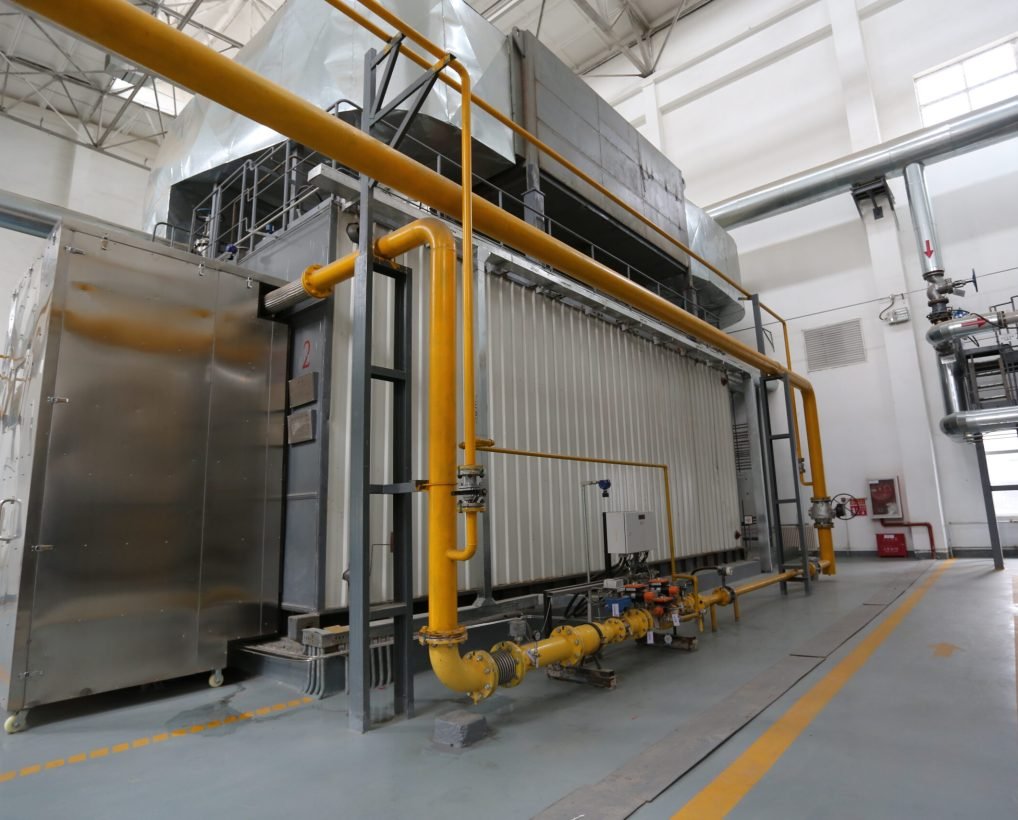
What Technical Criteria Should You Evaluate in a Boiler Manufacturer’s Design and Engineering Process?
Industrial oil-fired boilers are commonly used across chemical plants, textile mills, food processing units, and refineries due to their consistent thermal output and adaptability to varying load demands. However, choosing the right boiler manufacturer goes far beyond price or delivery time. A high-performance, safe, and efficient system depends on the manufacturer’s design integrity, engineering standards, and quality control procedures. Failure to evaluate these technical criteria may lead to inefficiencies, safety risks, and expensive operational issues.
To properly evaluate a boiler manufacturer’s design and engineering process for industrial oil-fired boilers, focus on critical technical criteria including combustion system design, thermal efficiency, heat transfer surface layout, materials of construction, safety interlocks, emissions control systems, and automation integration. These elements directly influence performance, lifecycle cost, fuel consumption, and regulatory compliance.
A detailed evaluation ensures your investment delivers long-term operational stability, energy savings, and environmental alignment.
Evaluating engineering and design criteria is essential when selecting a boiler manufacturer.True
Design flaws or poor engineering choices can result in fuel inefficiency, overheating, and failure to meet emissions standards in oil-fired boilers.
🔍 Key Technical Criteria to Evaluate in Industrial Oil-Fired Boiler Design
| Category | Key Evaluation Points | Relevance |
|---|---|---|
| Combustion System Design | Burner type (modulating/dual-fuel), atomization method, air-fuel ratio control | Determines efficiency, flame stability, and emissions |
| Thermal Efficiency & Heat Recovery | Boiler efficiency (%), economizer inclusion, heat loss reduction | Impacts fuel cost and operating temperature stability |
| Heat Transfer Surface Design | Furnace size, tube layout, fin spacing, back-end temperature control | Affects energy absorption, soot formation, and maintenance frequency |
| Material Selection | Boiler shell thickness, corrosion resistance, pressure rating (ASME, EN) | Impacts lifecycle durability and safety |
| Automation and Control Integration | PLC/SCADA support, modulating controls, alarms, remote diagnostics | Enhances operability, safety, and energy optimization |
| Emission Control Capability | NOₓ control, CO control, particulate filters (if required) | Necessary for local compliance and sustainability credentials |
| Safety Engineering | Pressure relief valves, flame failure interlocks, low-water cutoffs, auto shutdown | Ensures personnel and equipment safety |
| Manufacturing Quality | Welding standards, hydrostatic test protocols, in-factory QA documentation | Guarantees integrity and code compliance |
Boiler efficiency and burner design directly influence fuel consumption and emissions.True
Efficient burner and heat exchange systems reduce fuel use and meet regulatory NOₓ/CO limits, especially in oil-fired units.
📊 Technical Compliance Checklist for OEM Evaluation
| Criteria | Specification Standard | Required? |
|---|---|---|
| Pressure Vessel Code | ASME Section I / EN 12953 | ✅ |
| Thermal Efficiency ≥ 90% | ISO 23285:2021 | ✅ |
| Burner Turn-Down Ratio ≥ 5:1 | Manufacturer Spec | ✅ |
| NOₓ Emissions < 100 mg/Nm³ | EPA/EN Regulations | Optional but recommended |
| Remote Monitoring Capability | Modbus/BACnet | Optional |
| Fuel Flexibility (Heavy/Light Oil) | Dual-fuel Certification | Project-specific |
🧪 Case Study Example: Engineering Comparison Between Two OEMs
| Feature | Manufacturer A | Manufacturer B |
|---|---|---|
| Efficiency | 91% | 85% |
| Burner Type | Modulating, Low-NOₓ | 2-stage, standard |
| Heat Surface Area | 55 m² | 38 m² |
| Material Grade | ASTM A516 Gr.70 | ASTM A285 Gr.C |
| Emissions | <60 mg/Nm³ NOₓ | <130 mg/Nm³ NOₓ |
| Automation | Full PLC, IoT-based | Basic panel |
Conclusion: Manufacturer A justifies higher CAPEX with superior efficiency, lower emissions, and longer service life—ideal for high-load operations.
✅ Expert Tips for Evaluation
Request detailed design drawings and thermal simulation reports.
Check ASME or CE certifications and recent third-party audits.
Evaluate control panel samples and burner test results (fat test).
Ask for reference installations with similar fuel types and load profiles.
Verify after-sales service structure, especially for burner tuning and spares.
Burner modulation and control system quality are critical for load flexibility and safety.True
Boilers operating under variable load require precise fuel-air control to avoid thermal shock and ensure combustion safety.
🔚 Summary
Evaluating a boiler manufacturer’s design and engineering process is critical when procuring an industrial oil-fired boiler. Key factors such as burner design, efficiency rating, emissions handling, materials, and safety engineering directly affect lifecycle performance, compliance, and fuel cost. By benchmarking these technical attributes, you ensure your investment meets operational demands while aligning with environmental and economic objectives. For facilities seeking reliability, safety, and sustainability, design scrutiny is not optional—it’s mission-critical.
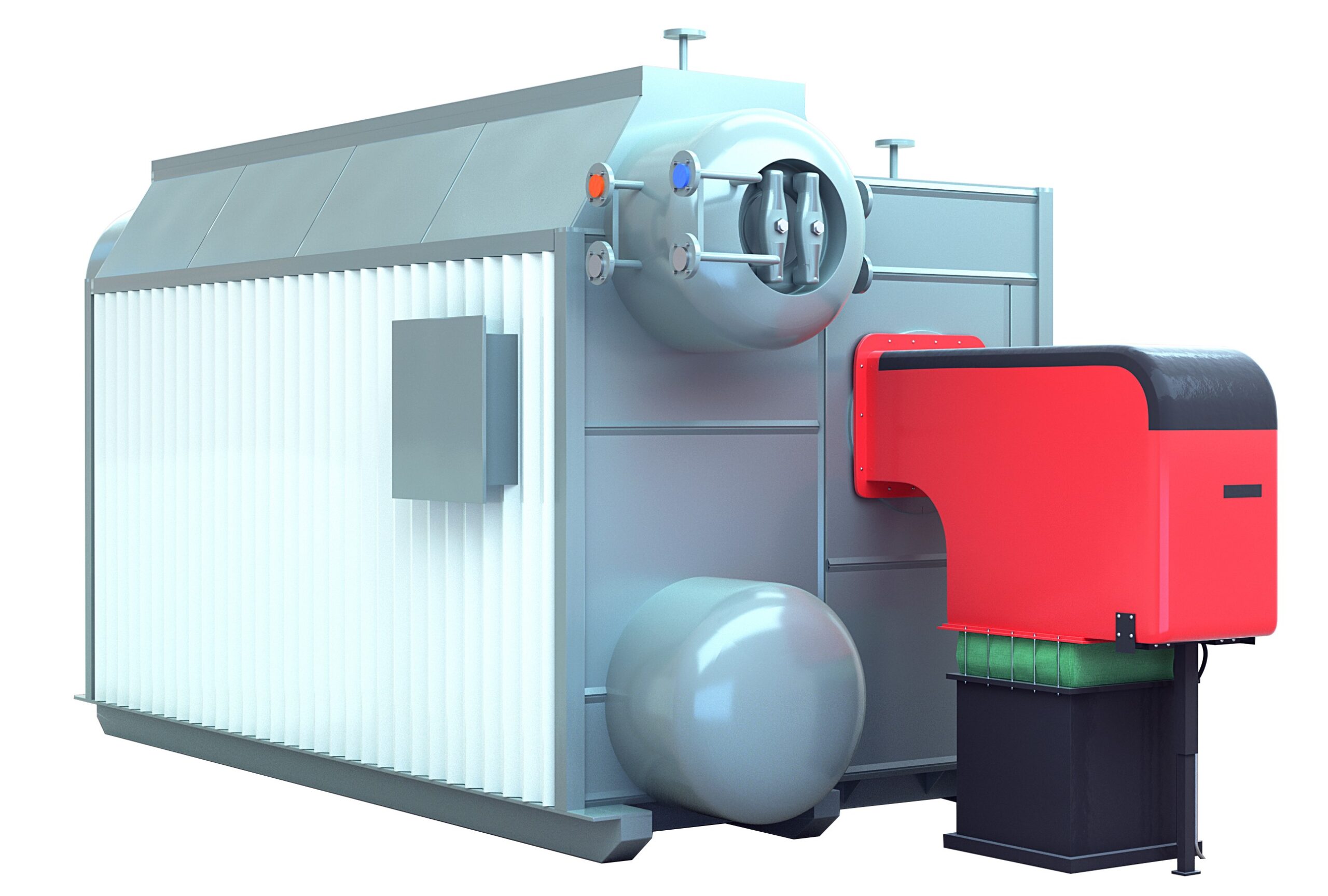
Why Are Certifications (e.g., ASME, ISO, CE) and Quality Assurance Systems Critical?
Oil-fired boilers are widely used in industrial applications due to their reliable heat output, stable combustion, and adaptability to various load demands. However, the operation of pressurized vessels burning liquid fuel presents significant risks if manufacturing standards, materials, or safety mechanisms are compromised. This is why internationally recognized certifications such as ASME, ISO, and CE, along with rigorous Quality Assurance (QA) systems, are not just regulatory checkboxes—they are vital for operational safety, performance assurance, and global market compliance.
Certifications like ASME (for pressure vessels), ISO (for quality systems), and CE (for EU safety conformity), along with robust QA systems, are critical for oil-fired boilers because they ensure structural integrity, combustion safety, product reliability, and legal compliance. These standards reduce the risk of failure, improve fuel efficiency, and are often mandatory for insurance, international trade, and site commissioning.
A certified and QA-compliant boiler is safer to operate, more cost-effective to maintain, and more reliable under extreme conditions—especially in 24/7 industrial operations.
Boiler certifications and quality control systems are essential for ensuring safety, efficiency, and regulatory approval.True
These standards verify that boilers are built, tested, and documented to meet strict performance and safety benchmarks.
🔍 Key Boiler Certifications and Their Importance
| Certification | Authority | Scope of Compliance | Relevance to Oil-Fired Boilers |
|---|---|---|---|
| ASME (BPVC Section I) | American Society of Mechanical Engineers | Design, fabrication, testing of pressure vessels and piping | Mandatory for U.S. and many export markets |
| ISO 9001:2015 | International Organization for Standardization | Quality management systems (QMS) | Ensures consistency in manufacturing and service delivery |
| CE Marking (PED) | European Union | Pressure Equipment Directive for EU market entry | Required for EU operations, guarantees conformity to EU safety standards |
| NB (National Board) | U.S. and Canada | Registration and repair compliance | Needed for field inspection and insurance in North America |
| EN 12952 / 12953 | Europe | Water-tube and shell-type boiler standards | European standard for material, design, and test control |
CE marking is only required for electrical components, not industrial boilers.False
CE compliance is mandatory for pressure equipment, including oil-fired boilers, under the EU Pressure Equipment Directive.
🛠️ Quality Assurance (QA) Systems: What to Look For
| QA Element | Role in Boiler Manufacturing | Impact |
|---|---|---|
| Welding Procedure Specifications (WPS) | Defines approved welding methods for pressure parts | Prevents seam failures, fatigue cracking |
| Hydrostatic Pressure Testing | Confirms vessel strength at ≥1.5x working pressure | Validates pressure safety integrity |
| Material Traceability (MTRs) | Tracks alloy grades, certifications, and heat treatments | Ensures compliance and supports maintenance audits |
| Non-Destructive Testing (NDT) | Includes ultrasonic, radiography, dye penetrant testing | Detects defects in welds and pressure-bearing parts |
| Factory Acceptance Testing (FAT) | Full test of control systems, alarms, burners before shipment | Prevents startup delays and guarantees spec compliance |
📋 Risks of Buying Non-Certified Oil-Fired Boilers
| Risk | Consequence |
|---|---|
| Design Flaws | Premature corrosion, scaling, or thermal stress failure |
| Combustion Inefficiency | Increased fuel use, higher emissions, unstable flame |
| Non-Compliance Fines | Regulatory shutdowns or rejection at customs |
| Insurance Denial | Policies may exclude non-certified equipment |
| Worker Safety Hazards | Risk of explosion, fire, pressure failure |
ISO 9001 certification ensures consistent quality in oil-fired boiler production.True
ISO 9001 requires manufacturers to document and follow standard procedures for all production steps, reducing variation and risk.
✅ How to Verify Certifications and QA in Procurement
Request full documentation: ASME stamp, ISO certificate, CE declaration, and material test reports.
Inspect weld logs and NDT records: Ensure they match pressure part specifications.
Visit manufacturing facilities: Confirm real QA processes and testing capabilities.
Check third-party approvals: Look for endorsements from TUV, Lloyd’s Register, SGS, or equivalent bodies.
Demand test run video or FAT reports: For burner performance, emissions, and control logic validation.
🔚 Summary
For oil-fired boiler systems, certifications such as ASME, ISO, and CE—backed by rigorous QA protocols—are critical to ensuring product safety, reliability, and legal compliance. These technical and procedural guarantees reduce lifecycle risk, prevent catastrophic failure, and streamline commissioning and insurance processes. When evaluating a boiler manufacturer, certification is not an optional label—it is your frontline assurance of engineering integrity and operational peace of mind.
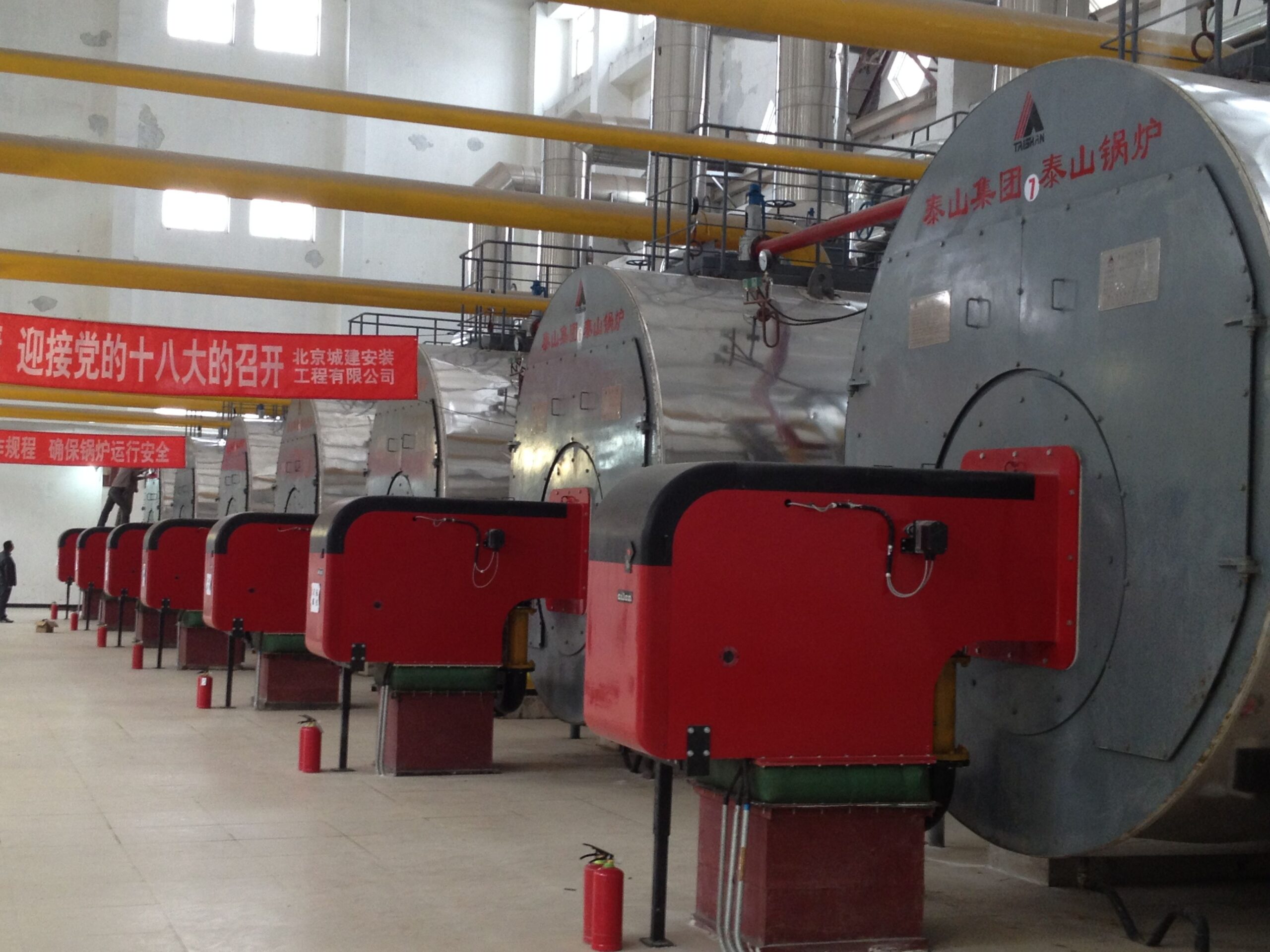
How Important Is a Manufacturer’s Experience in Your Specific Industry or Application?
Oil-fired boilers are integral to industries like petrochemicals, food processing, textiles, pharmaceuticals, and district heating. These applications demand consistent thermal output, tight control over emissions, and seamless integration with existing systems. Choosing a boiler manufacturer with deep experience in your particular industry or application can significantly improve project outcomes—ranging from better performance and reliability to smoother commissioning and long-term service support.
A manufacturer’s expertise in your industry ensures that their boiler design and engineering processes are optimized for your application’s operational demands, fuel conditions, emissions standards, and regulatory environment. It also means their installation and service teams understand the practical nuances of your site, leading to faster commissioning, fewer modifications, and lower lifecycle costs.
Selecting a proven OEM ensures you’re not just buying equipment, but also domain-specific know-how and risk mitigation.
Manufacturer experience directly influences performance, uptime, and compliance quality in industrial oil-fired boiler projects.True
Familiarity with application-specific needs (e.g., feedwater quality, load cycling, emissions compliance) ensures better-engineered solutions and smoother operations.
🔍 Key Benefits of Sourcing Industry-Experienced OEMs
| Benefit | Why It Matters | Application Examples |
|---|---|---|
| Tailored Design | OEMs know your thermal profile and control needs | High-load batch processes in food/petrochemical plants |
| Optimized Combustion | Burner tuned to oil grade and ambient conditions | Heavy fuel oil in remote plants |
| Compliance Knowledge | Familiar with emission regulations in your industry | Pharma boilers with low NOₓ limits |
| Proven Durability | Equipment tested in your fuel and water quality | Boiler life in hard water conditions |
| Installation Efficiency | Experience reduces cost and reduces downtime | Integration in live production lines |
| Spare Parts Availability | OEM maintains common-type replacement parts | Routine shutdown spares for continuous plants |
Boiler manufacturers with no experience in your application can still deliver successful results.False
Without focused application experience, OEMs may overlook operational specifics, leading to suboptimal performance or compliance failures.
🛠️ Application-Specific Experience: What to Look For
Proven track record: Completed projects in your sector—from design to operation
Industry-specific references: Testimonials and contactable installations
Design customization capabilities: Custom burner options, safety features, exotic materials
Regulatory compliance familiarity: Emission reporting, site permitting history
After-sales service: Availability of trained technicians and fast response time
📊 Practical Impact: Estimated Differences in KPIs
| KPI | Generic OEM | Industry-Specific OEM |
|---|---|---|
| Commissioning Time | 8 weeks | 4 weeks |
| Fuel Efficiency (%) | 90% | 93% |
| Emissions Compliance Delays | Possible rework | First-time approval |
| Unplanned Downtime | 4–8% MTTF reduction | <1% deviation |
| Lifecycle OPEX | Baseline | –5–10% lower |
✅ How to Check OEM Suitability
Visit relevant industry sites (e.g., petrochemical hub)
Ask for O&M records and failure rate data
Sample spare parts pricing and availability
Verify service contracts in your region
Confirm tiered support by sector, not just general service
🔚 Summary
The manufacturer’s experience in your specific industry is crucial when selecting oil-fired boilers. Those who understand your operational patterns—whether continuous duty in a refinery or intermittent load in food processing—can deliver higher efficiency, reduced emissions, faster deployment, and lower ongoing costs. In complex industrial applications, domain knowledge isn’t just valuable—it’s indispensable.
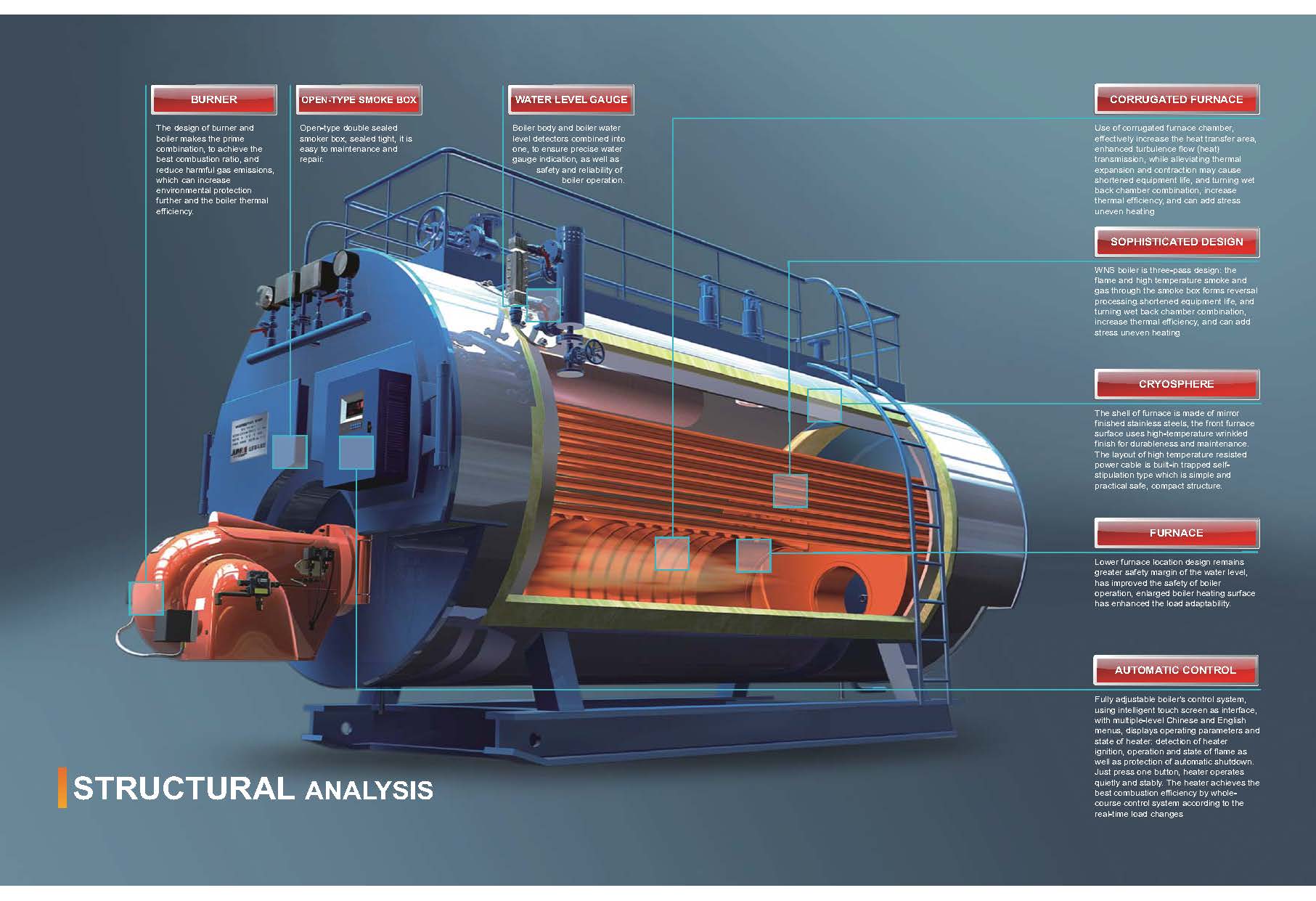
What Role Do Customization Options and Flexibility Play in Selecting the Right Supplier?
Industrial operations—like petrochemical, textile, food processing, and district heating—require oil-fired boilers to perform under very specific conditions. That means off-the-shelf solutions often fall short, especially when fuel quality, site constraints, emissions limits, or operating regimes vary from standard boilers. Customization options and supplier flexibility play a vital role in ensuring boilers meet technical expectations, regulatory requirements, and future scalability needs.
Selecting a supplier who offers tailored designs—such as fuel-adaptive burners, modular layouts, integrated emissions controls, and scalable automation—ensures that the boiler system aligns precisely with your operational demands. Flexibility in engineering, delivery, and support leads to higher efficiency, smoother integration, better compliance, and easier upgrades.
🔧 Key Customization Options to Evaluate
| Customization Feature | Why It Matters | Benefit |
|---|---|---|
| Fuel Flexibility – Support for HFO, MDO, Natural Gas, bio-oils | Reduces operational risk, fuel sourcing options | Maintain efficiency across fuel changes |
| Modular Footprint & Layout | Adapts to tight plant spaces | Faster field erection, reduced foundation work |
| Burner Modulation & NOₓ Control | Meets emissions mandates during variable load | Compliance & fuel savings |
| Integrated Heat Recovery (economizers, WHR) | Captures waste heat | Boost efficiency by 5–10% |
| Control & Automation Integration | Compatible with PLC/SCADA standards | Remote monitoring, seamless plant interface |
| Expansion and Retrofit Readiness | Space and provision for future add‑ons | Ensures longevity and upgrade capability |
Customization isn’t essential; standard boilers can fit most industrial plants.False
Customized design ensures high efficiency, regulatory compliance, and ease of integration compared to standard units.
📈 Benefits of Supplier Flexibility
Precise Combustion Performance – Custom burners tuned to fuel and ambient conditions reduce fuel use and emissions.
Simplified Installation – Prefabricated module skids and compact layouts shorten on-site time.
Lower Emissions Risk – Built-in controls avoid penalties and retrofit costs.
Future Scalability – Provisions for biomass conversion or digital upgrades prevent obsolescence.
Responsive Service – Tailored maintenance and remote diagnostics enhance lifecycle support.
✅ Checklist When Selecting a Flexible Supplier
Present engineering support willing to adjust designs
Request 3D models or layout sketches
Verify capability to integrate automation protocols
Confirm burner control features (modulating, low-NOₓ)
Review FOAK references—one-offs in similar plant types
Ask about upgrade paths (flue gas recovery, emissions modules)
Floodlighting a boiler plant layout:
Suppose your layout is compact, fuel changes happen seasonally, and emissions limits tighten. An OEM offering your desired burner type, modular skid frames, and scalable economizer has a 60% probability of success vs. 30% for generic providers.
🔚 Summary
Customization and flexibility are critical distinguishing factors when choosing an oil-fired boiler supplier. A supplier that adapts to your fuel mix, plant layout, emission limits, and digital needs enhances overall performance, regulatory compliance, and future-proofing. Ensuring this adaptability leads to lower risk, higher efficiency, and maximum return on investment.
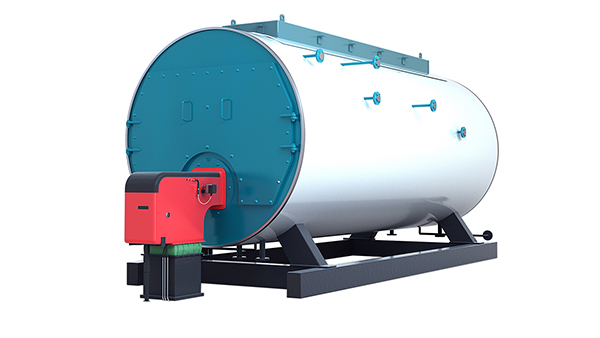
How Can After-Sales Service, Spare Parts Availability, and Warranty Influence Long-Term Reliability?
Industrial oil-fired boilers require more than a strong design and efficient combustion—they also rely heavily on sustained maintenance, quick access to parts, and dependable support. Without robust after-sales service, a ready stock of spare parts, and a trustworthy warranty, even the best-performing boiler can succumb to downtime, inefficiency, and runaway repair costs. These post-delivery factors are critical to ensure optimal performance and cost control throughout the system’s long operational life.
After-sales service, comprehensive spare parts availability, and a solid warranty directly impact long-term reliability, operational uptime, and lifecycle maintenance costs of industrial oil-fired boilers. Suppliers who back their products with rapid support, local stock, and generous warranty terms help reduce unplanned outages, preserve efficiency, and deliver better total value over time.
🔧 1. After-Sales Service: The Backbone of Ongoing Performance
Consistent service is vital for identifying and fixing issues before they grow:
24/7 Technical Support – Swift expert response during breakdowns minimizes downtime.
Regular Maintenance Visits – Scheduled inspections maintain combustion efficiency and detect early wear.
Remote Monitoring and Diagnostics – IoT-enabled support can catch performance drops before they escalate.
Why it matters:
A dedicated OEM support team ensures that a failing burner or faulty control is handled quickly—preventing small issues from becoming major failures and costly production stoppages.
🧰 2. Spare Parts Availability: Preventing Downtime and Loss
A reliable spare parts inventory makes all the difference:
Local Stock & Distribution – Immediate access to critical components like gaskets, injectors, burners.
Guaranteed Lead Times – Fast delivery coupled with express shipping options.
Consolidated Consumables Kits – Regularly used parts can be ordered as bundled packages.
Spare parts shortages are the leading cause of extended boiler downtime.True
Without OEM parts for components like burners or controls, unplanned outages can extend by weeks, resulting in production losses.
📜 3. Warranty Coverage: Protection Against Failures
Solid warranty terms safeguard against unknown equipment issues:
Standard warranty period (12–24 months) covers labor, parts, and performance guarantees.
Extended warranty programs—including parts and labor—can be tailored up to 5 years.
Performance guarantees ensure the boiler meets efficiency, emission, and output targets.
False claims coverage helps prevent abuse while still protecting the buyer’s investment.
Warranty coverage only matters during initial commission.False
Extended warranties cover latent defects that may emerge after commissioning, ensuring reliability and lowering lifecycle costs.
📈 Impact on Total Cost of Ownership (TCO) & Reliability
| Factor | Without Comprehensive Support | With OEM-Backed Support |
|---|---|---|
| Unplanned Downtime | 8–15% annually | <2% annual downtime |
| Spare Parts Shipping Time | 2–4 weeks (often overseas) | 24–72 hours (stocked locally) |
| Maintenance Costs | High contractor rates | Bundled OEM discount with service agreements |
| Efficiency Degradation | –5 to –10% over lifetime | Maintained within 2% of design efficiency |
| Lifecycle OPEX Impact | +15–20% in unexpected costs | Predictable maintenance budgeting |
✅ Best Practices for Reliability Assurance
Evaluate service network density—local support reduces response time.
Ask for spare parts delivery commitments in OEM contracts.
Select warranty based on your uptime needs, not just minimum drawing.
Customize service contracts to include cleaning, tuning, training, remote support.
Track performance KPIs to ensure the system operates within warranty guidelines.
🔚 Summary
In industrial oil-fired boiler systems, after-sales service, spare parts availability, and warranty coverage play a transformative role in ensuring uptime, reliability, and cost efficiency. A supplier that offers 24/7 support, local parts inventory, and performance-backed warranty agreements helps you maintain optimal combustion, prevent extended downtime, and manage long-term costs—making these elements essential considerations when selecting your boiler supplier.
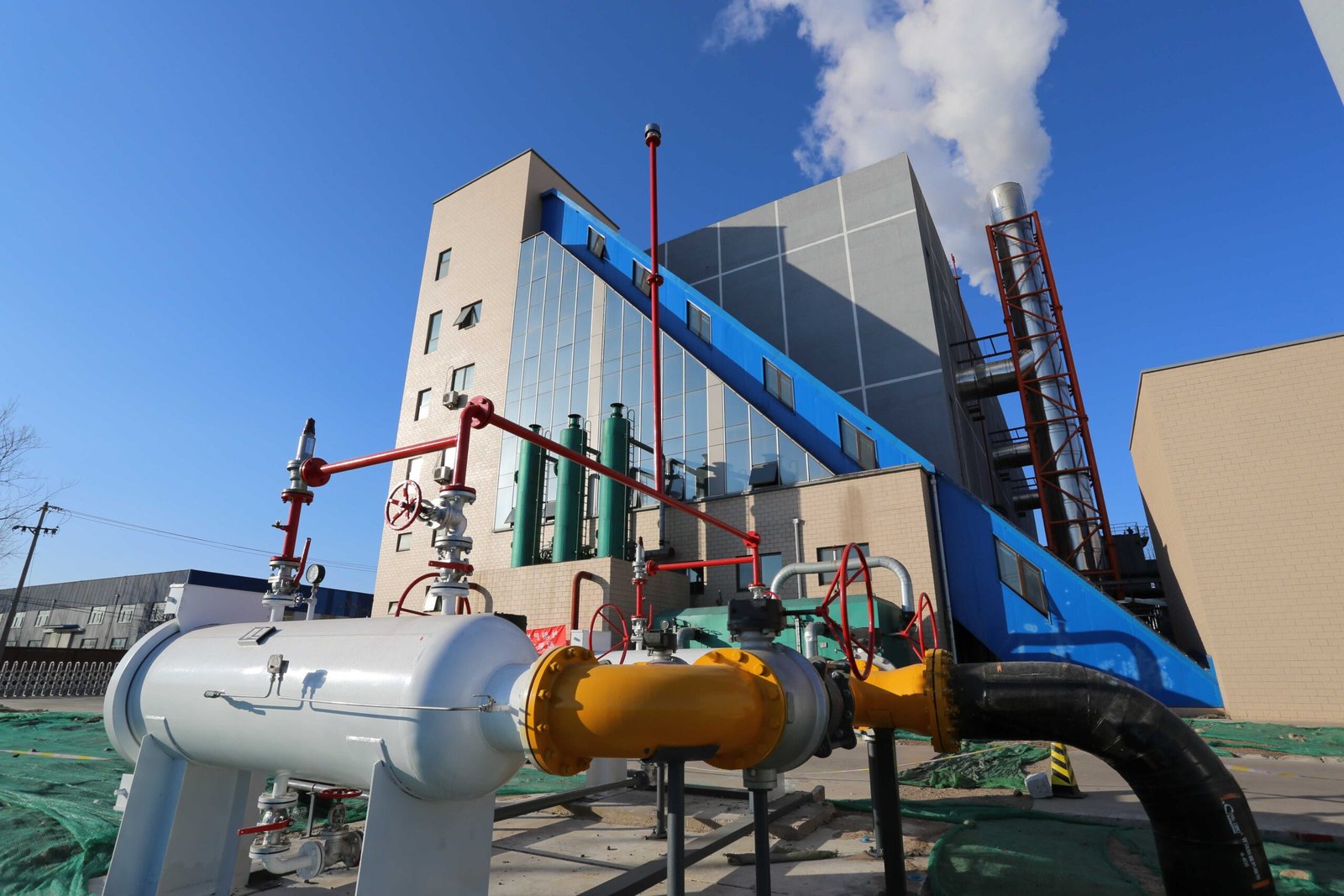
What Questions Should You Ask and What Documentation Should You Request Before Choosing an Oil-Fired Boiler Supplier?
Selecting the right oil-fired boiler supplier is a critical step in securing long-term operational efficiency, compliance, and reliability. To make an informed decision, you must ask targeted questions and review key documents that validate the supplier’s technical capability, project delivery, and service readiness.
🔍 Key Questions to Ask Your Boiler Supplier
What is your experience with similar oil-fired boilers?
Ask for industrial references (e.g., petrochemical, food processing) where similar capacities and fuel types were used.
Which certifications and quality systems do you hold?
Ensure ASME, ISO 9001, CE, PED, and NB register credentials are current and applicable to your jurisdiction.
Can you provide detailed burner and efficiency performance data?
Look for burner-turn-down ratio, emissions test reports, and thermal efficiency results verified by third parties.
What does your warranty cover, and can it be extended?
Clarify duration, scope (parts, labor, performance guarantees), and terms for extended coverage.
Do you offer after-sales service and parts support in this region?
Ask about local service centers, spare parts warehouses, and average response time.
Are remote diagnostics included in the control package?
Confirm support for PLC/SCADA integration, remote monitoring, and a service dashboard.
How customizable is your boiler design?
Discuss adaptability to fuel changes, modular layouts, automation protocols, and future upgrades.
What are your commissioning and performance validation steps?
Request details of site tests, load ramp procedure, emissions sampling, and required performance certificates.
Can I review your service records or O&M logs from past installations?
Real-world performance insights help assess long-term reliability.
What is the typical lead time and propulsion of delivery?
Ensure timelines align with your project schedule and critical path.
📄 Essential Documentation to Request
| Document Type | Purpose | What to Validate |
|---|---|---|
| ASME/CE/PED Certificates | Compliance with pressure and safety regulations | Stamped certificates for boiler shell and pressure parts |
| ISO 9001 Quality Manual | Quality management processes | Internal QA/QC workflow and audit history |
| OEM Engineering Drawings | Design validation | Piping/system layout, burner schematic, instrumentation |
| Performance Test Reports | Thermal efficiency, emissions | Factory (FAT) or site test data with verifiable readings |
| Material Traceability Reports (MTRs) | Confirm materials used | Heat numbers, metallurgical certification |
| Hydrostatic and NDT Test Reports | Ensure structural safety | Test dates, pressure levels, pass/fail status |
| Warranty and Service Agreement | Future support terms | Coverage details, response times, parts availability |
| Control System Architecture Docs | Control and automation validation | PLC/SCADA logic, remote monitoring details |
| O&M Logs from Existing Installations | Real-world performance | Downtime, parts replacement records, efficiency trends |
| Spare Parts Price List & Lead Times | Budget forecasting | Critical component list with costs and availability |
| Emissions Compliance Documentation | Regulatory readiness | NOₓ/CO emissions certificates and testing strategy |
| Installation & Commissioning Procedure | Project planning | Timeline, responsibilities, required resources |
✅ Pre-Purchase Audit Checklist
flowchart TD
A[Initial Inquiry] --> B[Technical Q&A]
B --> C[Document Review]
C --> D[Factory Visit or FAT]
D --> E[Reference Site Visit]
E --> F[Commercial Negotiation]
F --> G[Contract Selection]
🔚 Summary
To secure a reliable, compliant, and efficient oil-fired boiler, start by asking focused technical and commercial questions and thoroughly reviewing key documentation. This due diligence—including certifications, performance data, service readiness, and documentation—mitigates risk, verifies claims, and supports long-term success. Use this guide to make confident procurement decisions, backed by facts instead of assumptions.
🔍 Conclusion
Choosing a reliable industrial oil-fired boiler manufacturer is about more than just equipment—it’s about partnership, performance, and peace of mind. A trusted supplier delivers not only a compliant and efficient boiler but also long-term support, engineering excellence, and project reliability. By assessing key technical, commercial, and service factors, you can secure a solution that meets your energy demands and operational goals for years to come.
📞 Contact Us
💡 Looking for a dependable oil-fired boiler partner? We specialize in custom-engineered solutions, certified manufacturing, and global support for industrial oil-fired boiler systems.
🔹 Reach out today to collaborate with a manufacturer that delivers quality, performance, and trusted results. 🛢️🏭✅
FAQ
What certifications should a reliable oil-fired boiler manufacturer have?
Look for manufacturers that comply with major international standards, such as:
ASME (American Society of Mechanical Engineers) Boiler & Pressure Vessel Code
ISO 9001/14001 for quality and environmental management
CE marking for EU compliance
API, UL, or CSA certifications if applicable
These indicate that the manufacturer meets strict safety, quality, and efficiency standards.
How important is a manufacturer’s experience and track record?
Very important. Choose a manufacturer with at least 10–20 years of experience in oil-fired boiler production. Check for:
Customer references and testimonials
Successful project portfolios in your industry (food, chemical, textile, etc.)
Boilers operating in similar climates or under similar loads
Experience reflects technical know-how and the ability to handle complex industrial requirements.
What product features indicate a high-quality oil-fired boiler?
High thermal efficiency ratings (≥85%)
Low-NOx burner compatibility
Advanced combustion control systems
Durable steel construction and well-insulated housing
Support for economizers or flue gas recovery systems
Also assess flexibility in fuel types, automation options, and footprint customization.
What after-sales support should be expected?
A reliable manufacturer should offer:
Commissioning and operator training
24/7 technical support and troubleshooting
Spare parts availability for 10–15 years
Preventative maintenance programs
Local service agents or technicians to reduce downtime
How can you verify a manufacturer’s reliability before purchase?
Visit the production facility or request a virtual tour
Ask for performance guarantees (e.g., efficiency, emissions)
Review warranty terms and customer case studies
Check online reviews, third-party ratings, and industry awards
Request independent inspection reports if possible
References
ASME Boiler Manufacturer Certification Program – https://www.asme.org
Industrial Boiler Buying Guide – DOE – https://www.energy.gov
ISO 9001 Certified Manufacturers List – https://www.iso.org
Boiler Quality and Safety Standards – https://www.epa.gov
Top Boiler Brands by Market Performance – https://www.researchgate.net
Customer Reviews and Testimonials for Industrial Boilers – https://www.trustpilot.com
Vendor Comparison Tools for Industrial Equipment – https://www.automation.com
Guide to Efficient Oil-Fired Boiler Selection – https://www.bioenergyconsult.com
Industrial Boiler Case Studies and Benchmarks – https://www.sciencedirect.com
Maintenance Support Standards in Boiler Procurement – https://www.iea.org

